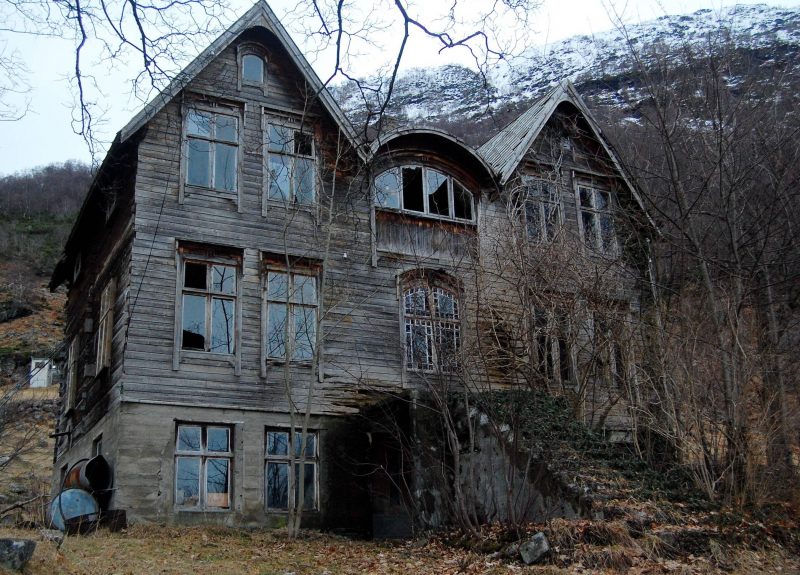A website has been created so that people can look up their address and find out how many people have died there.
The website is called Diedinhouse.com and uses information from news announcements, death certificates and police records to identify whether or not one or more people have died at an address.
You would at first think that this is some sort of spoof website but it is the real deal and has been featured in Forbes, Business Insider, Bloomberg Business to name just a few. The company searches public records and brings all the information into one place – they of course charge a fee for the service.
Founded in 2013 by software engineer Roy Condrey and it allows users to search an address to see if it had a dark former life (or even accommodates the afterlife). From murders and suicides to meth activity and arson, it uses data from over 130 million police records, news reports, old death certificates and more to determine if your house has seen horrors ~ DiedInHouse.com
The website is said to have provided real information about the Amityville house murders. Just as Halloween has come and gone, you can look up the information about your own house.
The site features a search function whereby you input your address and it will search through millions of records to discover if anyone had ever died there. It is a paid for service and the site charges around $12 for a basic search. The site has expanded its offering to also tell you whether any other incidents have occurred at your house such meth usage.
The data goes back to the 1980s when information and records began to be digitalised and now they are looking at how they can upload data prior to this. The owner of the website said that he had found out that someone had died in a house he was about to purchase.
He says he thought that the owners would have to notify potential purchasers about this type of information but it is not a legal requirement. When he started to look into it he realised that there was no one place that you can go to, to find out this kind of information.
Mr Condrey says that around 4.5 million houses across the US alone have had people die in them. Diedinhouse.com is the first known hub to host this information.
Journalists have checked the site to see if it is accurate and found that it did show up that a house they searched for in Ohio had at one time been the site of a meth lab, as well as the murders at Amityville and ownership of an office building in New York.
At the moment the site can only search for addresses in the US. And despite the fact that it is not a legal requirement to reveal a death in a house prior to selling, it can devalue a property by 25% and it could be on the market double the amount of time.

he site is benefiting those who have long held the belief their house was haunted – it might add to a rental’s sinister appeal, especially around Halloween. On the other hand, the less-than-savoury findings could have real implications for holiday home owners. According to Forbes, a house having a history of a death or a violent crime can lower its value by 30 per cent.
Condrey revealed that since setting the site live he has had a wave of hits from people in Texas and California. California residents, he says, are particularly interested in the many famous murders and deaths in the state and the possibility that one may be linked to their house.
‘It would bother me if I knew someone died in my house,’ Condrey said. ‘For instance, I couldn’t live in a house where there was a murder-suicide.
Want something else spooky from us? The history behind the – Jack-o’-lantern: the legend behind the Halloween pumpkin
‘Some people don’t have a problem with knowing someone died in their home. ‘But when you remind them that this knowledge could affect their home values, they change their tune.’
If you want to find out – you can do your own search yourself in your local city hall archives and costs you nothing.
